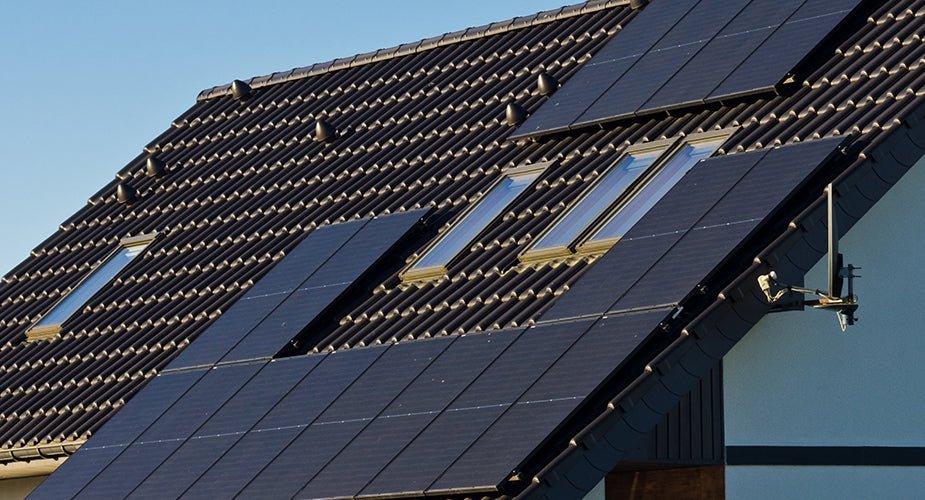solar energy vs fossil fuels, both are sources of energy that humans use to generate electricity, heating, and powering vehicles and other electric machines. Both come with their own set of advantages and disadvantages.
However, according to a researcher, we are now entering the clean power era as the use of renewable sources of energy continues to rise each year and the use of fossil fuels is expected to fall further by the end of 2023.
Let’s take a closer look at both solar energy and fossil fuels and find out why we are now experiencing the “beginning of the end of the fossil age”.

Introduction to Solar Energy vs Fossil Fuels
Solar Energy
Solar energy is the radiant light and heat from the sun that is harnessed using a range of technologies such as solar power to generate electricity and solar thermal energy.
Solar energy is a clean and renewable source of energy that has great potential to meet a significant portion of the world's energy needs. It is also considered a growing industry, with solar power installations increasing rapidly around the world.
According to Ember, an independent think tank, in 2022, 12% of the global electricity came from solar and power. The report also mentioned that solar power was the fastest-growing electricity source for the 18th consecutive year as the global solar electricity generation increased to 24%. Imagine this much power is enough to meet the electricity demand of South Africa for a year. This is the power of solar energy.

Fossil Fuels
Fossil fuels are a type of energy resource that is formed from the remains of dead plants and animals that have been buried underground for millions of years. They are called fossil fuels because they are formed from the fossils of these organisms.
Coal, oil, and natural gas are the most common types of fossil fuels around. Coal is a solid fuel that is made up of carbon and hydrogen. It is the most abundant fossil fuel on the planet and is used to generate electricity, produce steel, and heat homes and businesses. Oil, on the other hand, is a liquid fuel that is made up of hydrogen, carbon, and oxygen. It is used to power cars, trucks, and airplanes, and is also used to make plastics, lubricants, and other products. Finally, natural gas is a gaseous fuel that is made up of methane, carbon dioxide, and other gases. It is used to heat homes and businesses. It is also used to generate electricity.
Fossil fuels are a major source of energy for the world. They are relatively cheap, easy to use, and they have been the backbone of the global economy for centuries. However, fossil fuels also have a number of negative environmental impacts, including air pollution, water pollution, and climate change. These downsides are now being recognized by more and more people as time goes by hence the shift to more environmentally friendly options such as solar and wind power.
Solar Energy vs Fossil Fuels: A Side-by-Side Comparison
Below is a table that will show a quick comparison between solar energy vs fossil fuels statistics using five different points: availability, environmental impact, cost, efficiency and versatility. Using this will help us understand the good and the not-so-good (bad even) things about solar energy and fossil fuels.
|
SOLAR ENERGY |
FOSSIL FUELS |
|
|
Availability & Reliability |
As long as there's sun, solar energy is available. It is considered a reliable source of energy since it is still available even when the grid is down. One of the main challenges to this source of energy though is the amount of sunlight a location gets. An area that gets a lot of sunshine will be able to collect more solar power than a place where there's shorter daylight every day. |
Fossil fuels are very accessible. However, unlike solar energy, fossil fuels are non-renewable which means they will eventually run out. Not anytime soon but there will come a time in the future when there's no more fossil fuels left for people to use. They are considered reliable sources of energy until we've exhausted all of them. There is no question in terms of their reliability though because humans have depended on fossil fuels as early as our cavemen ancestors. They used coal for heating at that time. |
|
Environmental Impact |
Solar energy is a clean and renewable source of energy with no harmful emissions. Some may argue that there's still some negative environmental impact from when solar panels are made but solar energy alone is considered clean, healthy and sustainable. |
Fossil fuels produce greenhouse gasses when they are burned. Greenhouse gasses do not only give off harmful emissions but they also contribute to global warming. |
|
Cost |
While the initial cost of buying solar panels and other equipment needed to generate electricity from the sun can be quite expensive, its operating cost is actually very low. This is because once the solar panels are installed, maintenance requirements is almost close to none plus there’s no need to refuel anything. Also, the steady fall in prices, a 73% drop over the last ten years based on research, of solar panels makes it a cost-effective source of energy in the long run. |
Fossil fuels have low upfront costs because they are abundant and relatively easy to extract. The infrastructure for extracting and using fossil fuels is already in place, so there is no need to invest in new technology. However, the operating costs of fossil fuels can be high. This is because fossil fuels are not renewable, so they need to be constantly extracted and replaced. Always in demand, the depletion of fossil fuels and lack of availability contributes to the continuously rising cost of this source of energy. |
|
Efficiency |
At the moment, the average efficiency of solar panels for power generation is around 15-20%. Good news is that researchers are continuously finding ways to improve these figures and ultimately try to hit a 50% efficiency rating. |
The average efficiency of fossil fuels for power generation is around 35%. |
|
Versatility |
It can be used for many different purposes including generating electricity, heating water and powering vehicles. |
Just like solar energy, fossil fuels can be used in various ways such as generation of electricity, heat homes and businesses as well as power vehicles. |
Final Thoughts
Ultimately, the best choice for a particular application will still depend on the specific needs and preferences of the user. If you are looking for a clean, renewable source of energy, then solar energy is a good option. If you are looking for a more affordable and reliable source of energy, then fossil fuels are a good option.
As the world becomes more aware of the environmental impacts of fossil fuels, there is a growing movement to transition to renewable energy sources, such as solar and wind power.
Fossil fuels remain a dominant part of the global energy mix, and their usage is likely to continue for years to come. However, when comparing solar energy vs. fossil fuels, it’s clear that solar power’s potential is only getting stronger. Solar technology advancements and the declining costs of solar panels are making this energy source increasingly competitive. With its ability to provide clean, renewable energy with minimal environmental impact, solar energy is positioned to become a key player in the energy landscape, gradually reducing the world’s dependence on fossil fuels.
* We want to give credit where credit is due. Professional writer, Ann Matthew, contributed research and content to this blog titled: Solar Energy vs Fossil Fuels Thank you, Ann, for your contributions!













